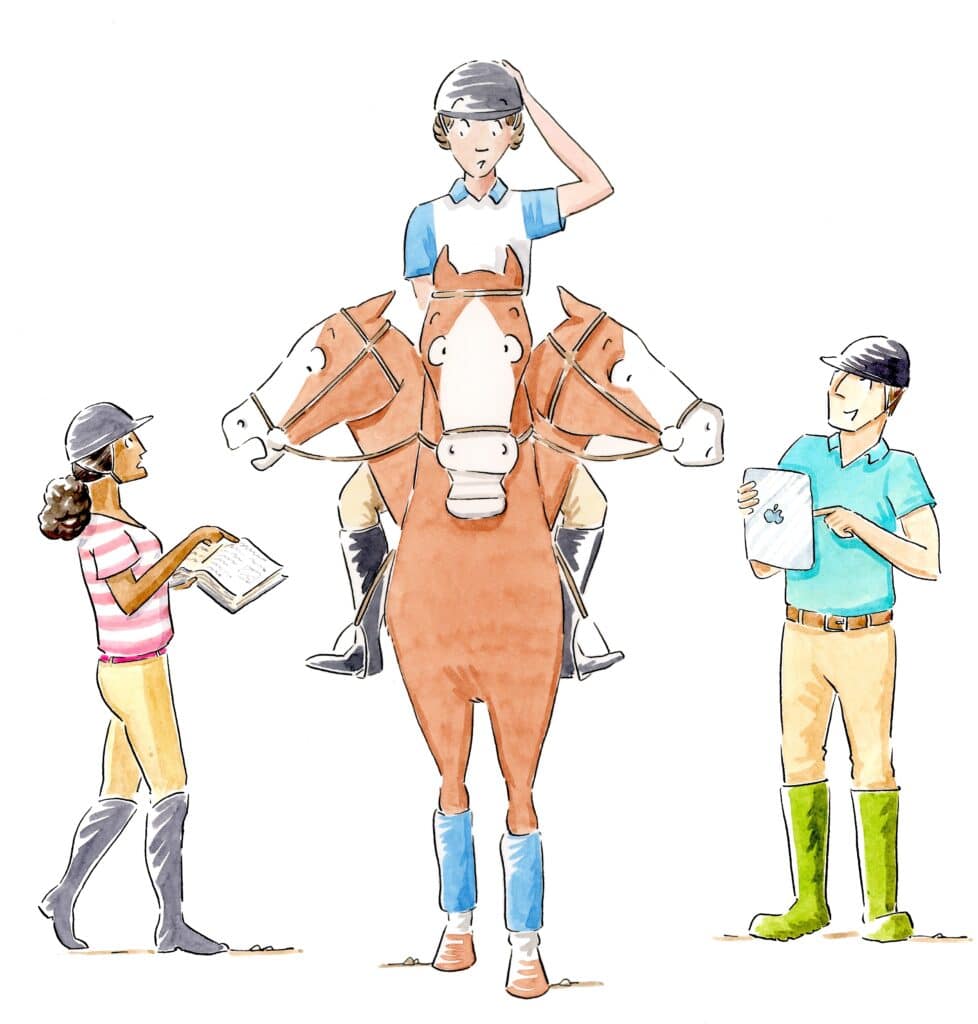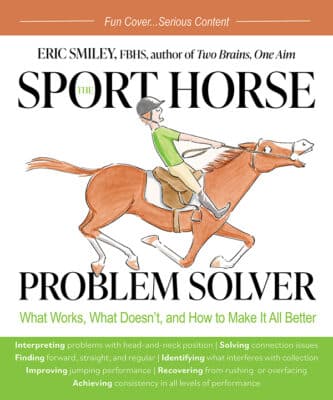The Horse Hub has joined with Quiller Publishing, to bring you a new series of excerpts from their latest books on equine training and management and, a special offer discount just for Horse Hub readers. To receive the discount all you have to do is enter your details and the discount code will be sent directly to you. Visit the offer page here.
First up, hot off the press is ‘The Sport Horse Problem Solver’, by former Olympic international event rider Eric Smiley FBHS. In this excerpt Eric talks about the vocabulary of learning …
Over the years I have developed a vocabulary for all levels from beginners to the most advanced horse-and-rider teams. The words we choose must be appropriate to the level of each lesson if they’re to be understood and of value.
I have found that it also helps learning if we can think of as many senses as possible when we speak; hearing the words, being able to do what is being asked, seeing and feeling a change. Connecting to the senses comes from using verbs – ‘doing words’. So my vocabulary has become focussed on these.
I find the word collection difficult to deal with. In fact, I can’t think when I last used it. Let me explain.
To me it is the one word that ruins more good riding than any other in our equestrian vocabulary. It’s there to define a stage in a horse’s schooling when the horse shows true engagement of the hindquarters and a lightening of the forehand, where the horse is light and responsive to the rider’s aids, and at a mere thought, is able to do what is asked of him. This is a lot to ask of our education process and the horse’s understanding of it.
Along the route to achieving collection, there are many difficulties to face, some educational and some physical. Each educational effort will produce some success in seeking a more collected horse. There is no destination, as collection is part of the journey. There are only degrees of collection dependent on the stage of training. These degrees are likely to be a compromise, which depend on a horse’s physical and mental ability to cope with what is being asked.

In my experience as an FEI (Federation Equestre Internationale) judge, the introduction of the word at the lower levels of dressage was a grave mistake. It encouraged the training of horses to be pushed beyond their level of expertise with the result of schooling faults appearing, including short necks, four-beat canters, loss of impulsion, and horses not going forward. These are all faults that come from collection being asked for too soon or by the uninformed or both. They are all faults that can be difficult to correct once established in the horse’s mind.
So, in general, I avoid using or talking about the word collection. Only when the partnership displays work in the correct direction is it worth talking about “A little more push from behind,” “Readjust the balance,” “Not so hurried,” or “Encourage more cadence.” These are expressions that retain good work on our way to a more collected gait.
“It should be understood that a solid “7” in a dressage test for producing good work without asking for collection, even when it is indicated as part of the movement, is infinitely better than getting a “5” or less for losing forwardness and impulsion or a shortening of the neck.”
Each horse will demonstrate a degree of collection in a different way. Do not lose the constant qualities in an effort to produce the appearance of collection.
The Horse Hub have teamed up with Quiller Publishing to bring you this excerpt from former international event rider Eric Smiley’s latest book ‘The Sport Horse Problem Solver’.

